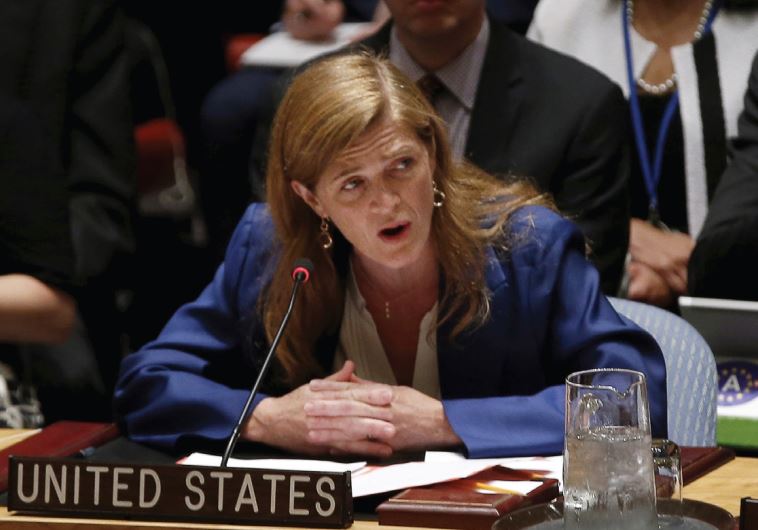A Dose of Nuance: What the American Jewish Left has against Israel
It may sound surprising to say “American Jewish opposition to Israel,” and not to “Israel’s policies,” but it is sadly accurate.
 US ambassador to the United Nations Samantha Power speaks at the UN headquarters in New York on July 20
US ambassador to the United Nations Samantha Power speaks at the UN headquarters in New York on July 20